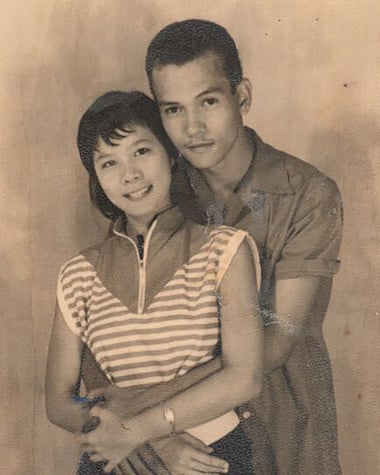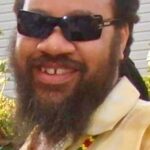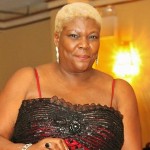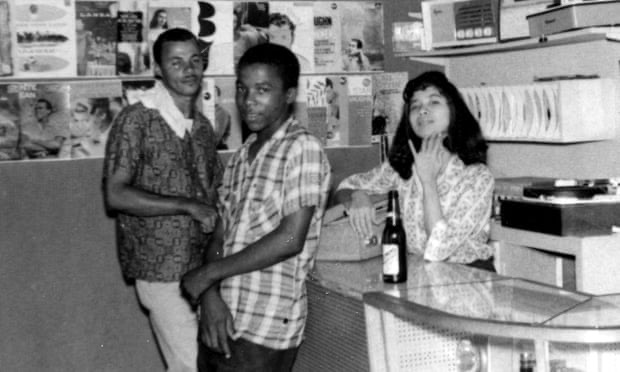Patricia “Miss Pat” Chin, who founded the VP Records shop, distributor and label in New York 40 years ago with her late husband, Vincent “Randy” Chin, (VP stands for Vincent and Pat) is still going strong, 60 years into a remarkable career. With VP, Chin has nurtured the careers of superstars, including Maxi Priest, Bounty Killer, Lady Saw, Beenie Man, Ini Kamoze, and Sean Paul, all of whom feature on a new 97-track anniversary box set.
Miss Pat was born in Greenwich Farm, Kingston – her mother was Chinese and her father Indian – and she remembers that music was omnipresent in their household.
“We didn’t have much entertainment,” she says. “If someone had a television, it would be just a tiny black-and-white Rediffusion. We didn’t then have a culture called reggae, but we were blessed to have R&B imported from America.” Then at 18, “I chose the music business,” she says. “Or the music business chose me. The music business was my husband.”

As soon as she met Vincent, another avid R&B and jazz fan, she dropped out of her nursing studies course, and they went into business, delivering singles to jukeboxes around the island of Jamaica. “It was exciting meeting the people, seeing how excited they were to receive records, understanding their taste,” she says. In 1958, they set up a stall selling off old 45s, and, as new Jamaican styles of mento, ska, rock-steady, then reggae emerged, they opened a shop, a distribution company and then a studio.
They were, she says, a powerhouse partnership: “Vincent was always social with the musicians,” she recalls. “I worked behind the counter, taking the money, keeping the catalogs, always watching what people wanted.” Miss Pat also pioneered the compilation album in what was then a singles-only reggae market.
They were incredible talent in their surroundings: the Wailers, Lee “Scratch” Perry, Dennis Brown, Augustus Pablo, Errol Thompson (the audio engineer who schooled Clive, Vincent’s son from another relationship, in production) and Rico Rodriguez were all in the Chins’ orbit. Outside the shop was an area known by local people as Idler’s Rest. “It was a resting place for all the musicians, all the producers, all the singers, all the buyers from England,” she explains. “Then if someone was recording and they wanted a backup singer, they would shout: ‘Come up, Delroy Wilson!’ or: ‘Come up Keith Poppin!’ or: ‘Come up who is there on the sidewalk, we need someone to back up!’ It was like an agency – contracts being signed right there.”
In the 1970s, political violence in Kingston got out of hand, and the family shut the studio and relocated to Brooklyn. “We had everything in a trailer,” says Chin. “Even food. Immigration asked us: ‘Why your trailer full of food?’ and it was because we’d spent the last of our money on it to keep us going.” Once again, a tiny shop, then a bigger one in Queens, led to a distribution business and a label. “For each release,” she says, “we had to save our money, borrow a stamper [record press] from any studio we could, call people all over America to tell them what we had.”
They tried pushing roots reggae, but “dancehall is what Americans understood,” she says. “Because hip-hop was coming out at the same time, they could understand its similarity.” That connection – from breaking Shabba Ranks, through signing Elephant Man to Puff Daddy’s Bad Boy label, to grooming Sean Paul for megastardom – turned VP into the biggest dancehall label in the world. This was hard graft. Chin remembers years of “no mobile phones, no emails – just making so many calls to Kingston to try to find a singer or recording!” She was active in artist development, too. “I love seeing some of the artists develop and grow,” she says with pride. “I remember Sean Paul when he first came – he was so shy – but then they develop. Then Sean got too big for our family business, and we helped take him to the next step.”
There have been tough times along the way – not least Vincent’s death in 2003, the shooting of her step-grandson Joel (who Pat says was VP’s “ears on the street in Kingston”) in 2011 and a recent rift with Joel’s father, Clive, over the old tapes. But now Chin proudly watches over an empire with a steady stream of new and heritage Jamaican releases – children and grandchildren manage the label – with concerts in New York to celebrate VP’s anniversary. She may only work two or three days a week in the office, but with a Vincent & Pat charitable foundation to manage, memoirs to write “and still being a mum, bringing their lunch into the office for them,” she refuses to slow down. What keeps her going? “I just love to share my culture,” she says. “And my knowledge.” She laughs: “If I don’t keep busy, I get bored!”







